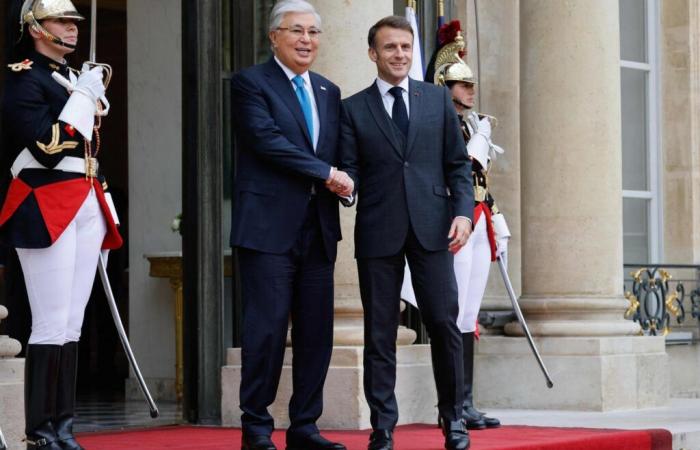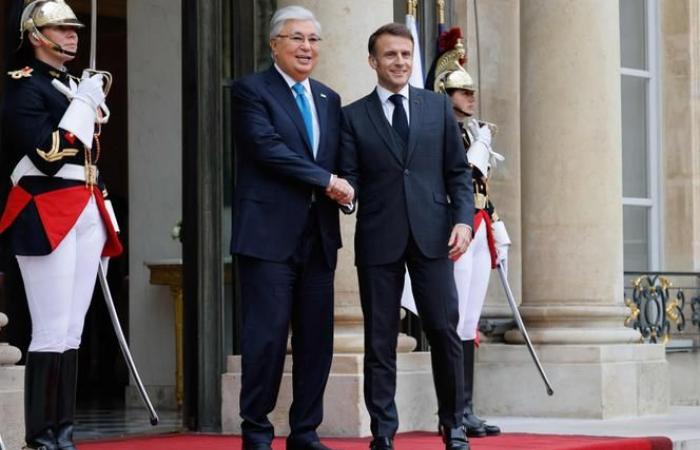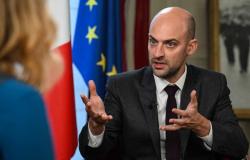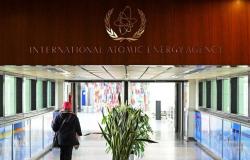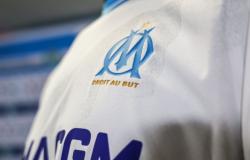Between Emmanuel Macron and Kassym-Jomart Tokayev, it has become an end-of-year habit. The French president welcomed his Kazakh counterpart to Paris on Tuesday, November 5, with all the honors of a state visit. “For a spectacular strengthening of our relations,” promised the Elysée; a “wide-ranging development,” a Kazakh diplomatic source said, similarly enthusiastic.
One year after Macron’s trip to Astana, the opulent capital built in the middle of the steppe, Tokayev was reunited in the Elysée gardens with the two Kazakh greyhounds he gave Macron him at the time. Since then, after a tumultuous start far from the steppes, Jules and Jeanne have adapted to life in Paris and appeared at the feet of the two presidents on Tuesday, well-behaved and obedient. “Canine diplomacy…” quipped Macron’s office.
Several agreements and contracts were signed on Tuesday, including one by Alstom to supply electric locomotives. But above all, Kazakhstan, a country five times the size of France, with a population of just 20 million, is attractive for its wealth of raw materials. The former Soviet republic, economically the most powerful country in Central Asia, supplies France with almost 40% of its uranium. As the two “partners” have increased their cooperation on nuclear energy over the years, Paris hopes in return that EDF will be chosen by Astana to build its first nuclear power plant. “The road is long, but the momentum is good,” said a senior French diplomat. But no agreement has yet been signed.
‘Increasingly dependent on Moscow’
Following the referendum in October which paved the way for the resumption of civil nuclear power, despite the trauma of the health damage caused by Soviet testing, Tokayev has promised that the future plant will be entrusted to an international consortium. Chinese and South Korean competitors are in the running. But the main contender is Rosatom, the Russian giant and nuclear arm of the Kremlin. “As is often the case with the Kazakhs, the solution will be convoluted. Everyone will have a share in the consortium. But, as usual, the Russians will have final control,” warned Vera Grantseva, an expert on Kazakhstan at Sciences Po. “Because it’s a fact: Astana is becoming increasingly dependent on Moscow.”
Read more Subscribers only Kazakhstan’s mining resources are increasingly coveted
Ever since Tokayev had to rely on the support, political but above all military, of Vladimir Putin’s Kremlin in January 2022 to violently quell clashes on a scale unseen in three decades of post-Soviet independence, the Kazakh president has been striving to portray his autonomy from the Russian big brother.
You have 40.47% of this article left to read. The rest is for subscribers only.

